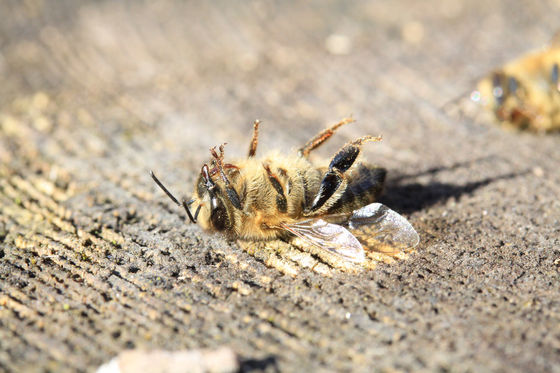A quarter of known honeybees have not been confirmed to survive since 1990

New research shows that
Worldwide occurrence records suggest a global decline in bee species richness --S2590-3322 (20) 30651-5
(PDF file) https://www.cell.com/one-earth/pdfExtended/S2590-3322 (20) 30651-5
“Something Is Happening to the Bees” – 25% of Known Bee Species Haven't Appeared in Public Records Since the 1990s
https://scitechdaily.com/something-is-happening-to-the-bees-25-of-known-bee-species-havent-appeared-in-public-records-since-the-1990s/
A quarter of all known bee species haven't been seen since the 1990s | New Scientist
https://www.newscientist.com/article/2265680-a-quarter-of-all-known-bee-species-havent-been-seen-since-the-1990s/
January: Pesticides and sleep in bees and flies | News and features | University of Bristol
http://www.bristol.ac.uk/news/2021/january/pesticides-insects.html
Many studies published in the past have shown that honeybee species depletion has a significant impact on human life and nature, but studies have conducted long-term assessments of honeybee diversity. I didn't come. So Eduardo Zattara and Marcelo Aizen, biologists at Komawe National University in Argentina, gather data from the Global Biodiversity Information Organization, which collects biodiversity information from scientists and citizens around the world. Was acquired and analyzed.

As a result, it was found that the number of honeybee species reported to be found between 2006 and 2015 decreased by 25% compared to before 1990. 'The ability for citizens and scientists to share data over the Internet has increased records exponentially, and nonetheless, these records are reported,' Zattara said. Species diversity has been declining. '
In addition, the reduction rate of the sweat bee family, which is a common species among honeybees, was 17%, while the reduction rate of the rare Melittidae family was 41%, and the reported species of honeybees are decreasing. I also found that there are variations from one to another.
The study only found that the reported species of honeybees were declining, so it was not determined that honeybees were extinct. But Zattara said, 'The important thing is that it's showing a downward trend rather than how accurate this number is. In the natural sciences, we're holding back until we're absolutely convinced. We should ask policy makers to make decisions before it's too late, 'he said, adding that the time left to stop the decline in bee seeds is short.
Colony collapse disorder is one of the reasons why honeybees are on the decline. Colony collapse disorder has been confirmed in the United States, Europe, Japan, etc., and although the direct cause is unknown, the theory that 'pesticides may be the main cause' is considered to be promising.

Among pesticides, studies so far have shown that neonicotinoid insecticides 'have a great effect on beneficial insects even at concentrations below the lethal dose.' One of them is the research by Kia Tasman, a neurologist at the University of Bristol in the United Kingdom.
To investigate the effects of neonicotinoids, which are widely used as pesticides around the world, on insects, Tasman et al. Added neonicotinoids to bumblebee food at concentrations that are expected to be exposed on farms sprayed with pesticides. We conducted an experiment to mix and feed. As a result, the day and night of the bumblebee was reversed, and he began to sleep in the day and search for food at night.
From this, Tasman said, 'The inability of bees to forage at dawn means that they cannot collect food at the time when honey and pollen are most abundant. This means that bees have the ability to collect food. It will be reduced, which in turn will prevent the bees from breeding. '
Related Posts:







